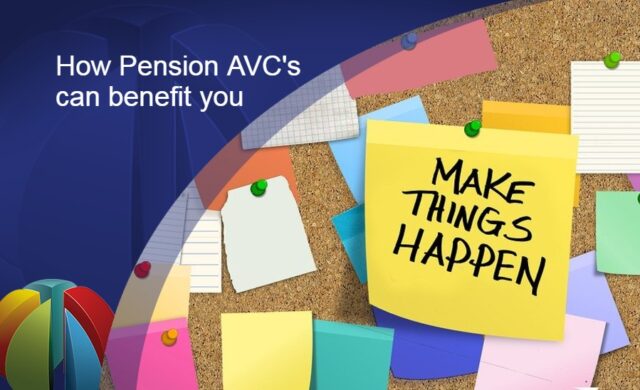Additional Voluntary Contributions (AVCs) are a simple and tax efficient way for public servants to save for their retirement. They are extra contributions that public servants can make in order to enhance their pension benefits
Why is it a good idea for a public servant to make AVCs?
AVCs can be difficult to get your head around, as there is no one size fits all solution. Everyone’s current pension situation, future plans and goals are different, however there are a number of key common reasons why making AVCs can be of great benefit to you.
- They can enhance your Pension Lump Sum at Retirement –This is a very popular reason public servants make AVCs. The maximum pension lump sum you get from your main scheme is provided on 3/80ths of each year of service and is based on Pensionable Remuneration. The maximum allowable Limit is based on Final Remuneration. There is often a substantial difference between these and if so AVC’s can be used to bridge this gap and enhance your Lump Sum.
- They can enhance your Income in Retirement – The maximum pension you can get is provided on 1/80ths of each year of service and is based on Pensionable remuneration. The Maximum Allowable Limit is up to 2/3rds salary and is based on Final Remuneration. AVCs can be used to bridge this gap.
- If you are short the maximum number of years’ pensionable service – The maximum number of years’ service you need to avail of maximum benefits is generally 40 years. Some occupations like Defence Forces, Guards and Prison Officers need less. If your pensionable service at normal retirement age is less then the maximum, AVCs can be used to enhance both Lumps Sum and Pension Benefits.
- Help target Early Retirement – AVCs can be used to supplement pension benefits and help target and plan for early retirement at a specific date/age. This is a very popular reason used by many public servants to front load their additional pension benefits through the AVCs.
- Tax Efficient – Contributions to AVC’s qualify for tax relief at your marginal rate. Therefore if you pay tax at 40% every €100 contribution you make to an AVC arrangement has a real cost to you of €60.
- Tax Free Investment Growth – Your AVC premiums are allowed to grow tax free. There is no Capital Gains Tax or Exit Tax to pay. The compounding effect of tax free investment growth over the long term can be substantial.
How much of an AVC can a public servant make?
As I have said previously, everyone’s current pension situation and future plans are different. At Peavoy Financial Planning we will assist you in putting a solution in place, specific to your plans. Key information we need to be able to this for you would be
- Your most recent Pension Statement
- Your last payslip for the 2019 tax year
- Your most recent payslip
- Your Date of Birth
- Details of your existing AVCs
- Details of contributions you make towards purchase of Notional Service
- Information on any Retained Pension Benefits you have
If you have any questions or would like us to work out a plan with you we would love to hear from you. For more information, get in contact with me here at Peavoy Financial Planning and we will put our heads together and work through your situation. I can be contacted on 087-2902206 or alternatively by email on david@peavoyfinancial.ie
David Peavoy BA, QFA, LIAP is the owner of Peavoy Financial Planning whose practice is based in Office 5b, Portlaoise Enterprise Centre, Clonminam Business Park, Portaloise, Co Laois.
David Peavoy T/A Peavoy Financial Planning is regulated by the Central Bank of Ireland.
Disclaimer: All data and information provided within this blog is for information purposes only. It should not be taken as specific advice for your situation. Peavoy Financial Planning makes no representations as to the accuracy, completeness, or suitability of any information and will not be liable for any errors, omissions or delays in this information or any losses, injuries or damages arising from its use.
SEE ALSO – Check out more columns from Peavoy Financial Planning here


























